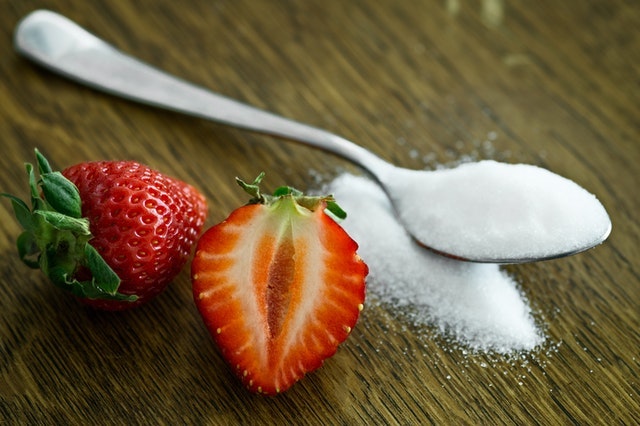The Effect of Sugar on Teeth

All our lives we’ve been told we have to brush twice a day and floss. So we try to do that. We go to the dental office like we should for cleanings and other preventative care such as fluoride treatments. Some of us even whiten our teeth and get cosmetic dentistry. Yet...there’s a breach in the fortress and the enemy comes in waves. Really sweet waves. It’s SUGAR! Why do we do this to ourselves? [violent shaking of our own necks.] It’s not good and we know it. There are so many reasons to avoid sugar. Let’s look at the effects of sugar on teeth.
The Problems
Sugars are an excellent source of food for bacteria. The bacteria then cranks out acid as a byproduct and the acid eats away at the enamel on the teeth. When that enamel is gone, the acid causes devastating damage to the interior of the teeth, leading to abscesses which can cause tremendous pain, pricey dental work, and affect the overall health of the body. The local fast food place may sell sweet tea for a dollar, but it will cost people way more than a dollar in health and money with continued exposure.
Both sugar in liquid form and as food smashed between teeth can often go where brushes cannot, so in the cat and mouse game of sugar vs personal dental care, the sugar often wins. We recommend flossing and a good fluoride mouthwash for this reason. We have a blog post on fluoride mouthwash worth checking out.
Another problem is indirect in that higher blood sugar levels and diabetes can be devastating on oral health.
The Solutions
With both higher blood sugar and enamel degradation, one answer is to simply cut the sugars out of the diet. That’s not fun to hear, but it’s reality. The Journal of Dental Research said in a 2013 study that between direct and indirect exposures, sugar intake should be no more than 5-10 percent of a person’s total diet.
Since one of the effects of sugar on teeth is the erosion of the protective enamel, the best defense is a good offense. Brushing, flossing, and rinsing soon after having sugar in the mouth greatly reduces its opportunities to feed the acid-producing bacteria which causes the damage. Instead of waiting till bedtime, consider doing your personal oral care after meals and sugary drinks. Brushing with flossing is best, but even fluoride mouthwash is better than nothing.
Another good-offense approach is to get fluoride treatment. Not only does the fluoride strengthen the tooth, it can actually help reverse some of the damage. Without extra help, teeth struggle to heal and, consequently, damage tends to accumulate and become progressive. Fluoride can help teeth recover the lost protection. In addition, professional cleaning can remove plaque that harbors the sugar, bacteria, and acid. The registered dental hygienists at Carolina Family Dental - who are well trained, thorough, and passionate about oral health - will gladly remove plaque and put you on a road to success.
Carolina Family Dental thrives because our patients know we care about them and that we know what we’re doing. Years of successful practice and training have made us knowledgeable, experienced, and skilled. Those are all critical components to running an effective company. In our case, though, we are aiming higher. We strive to be professional, but we also enjoy getting to know each of our patients. If we seem like a dental practice you find interesting, contact us and we’re happy to answer questions or to schedule an appointment.